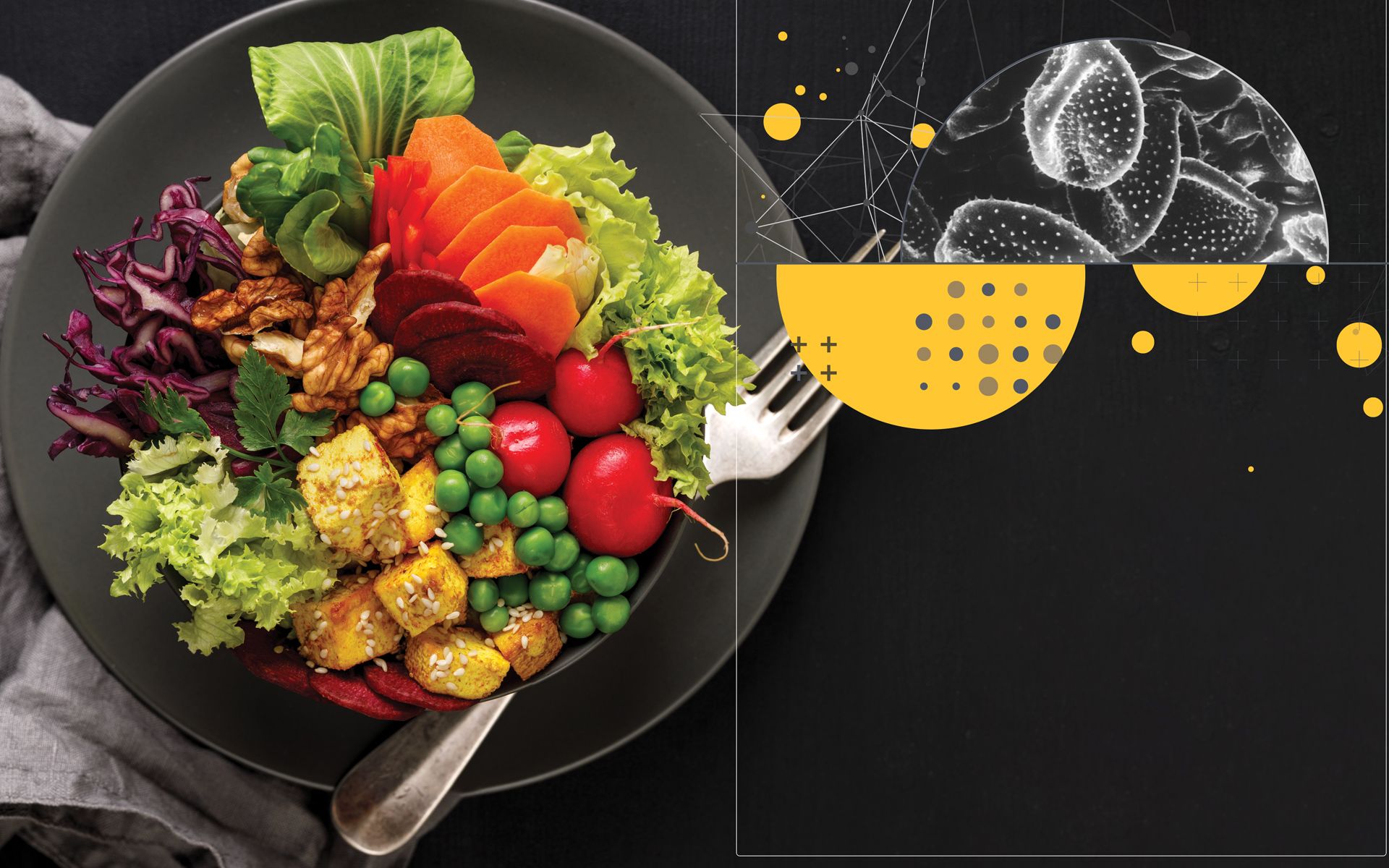Science Square (Issue 157)

In This Article
-
Plant-based diet promotes rapid heart benefits
-
Tiny biobots heal damaged cells
-
Music preferences mirrors ethical compass
Plant-based diet promotes rapid heart benefits
Landry MJ et al. Cardiometabolic Effects of Omnivorous vs Vegan Diets in Identical Twins. JAMA Network Open, November 2023.
A vegan diet has been shown to significantly improve cardiovascular health in just eight weeks. A recent study utilized twenty-two pairs of identical twins to control for genetic differences and other confounding factors, as the twins shared similar upbringings and lifestyles. The trial involved forty-four participants, with one twin from each pair following a vegan diet and the other an omnivore diet. Both diets were considered healthy, rich in vegetables, legumes, fruits, and whole grains, while excluding sugars and refined starches. The vegan diet was entirely plant-based, excluding meat, eggs, and dairy, while the omnivore diet included animal-sourced foods. Results showed significant improvements in cardiovascular health for those on the vegan diet. Participants following the plant-based diet exhibited lower levels of low-density lipoprotein cholesterol (LDL-C), insulin, and body weight compared to their omnivore counterparts. The vegan participants also experienced a 20 percent drop in fasting insulin levels and lost an average of 4.2 pounds more than their omnivore counterparts. The most substantial changes occurred within the first four weeks, suggesting rapid benefits from adopting a vegan lifestyle. This study emphasizes the potential benefits of moving toward a more plant-based diet, even if not fully vegan. Cutting back on saturated fats, increasing dietary fiber, and losing weight—achieved by both vegan and omnivore participants—are key steps for improving cardiovascular health. Incorporating more plant-based foods into one's diet, citing additional benefits such as increased gut bacteria and reduced telomere loss, contributing to slowed aging.
Tiny biobots heal damaged cells
Gumuskaya et al. Motile Living Biobots Self‐Construct from Adult Human Somatic Progenitor Seed Cells. Advanced Science, November 2023.
Scientists have developed anthrobots—tiny robots made of human cells capable of repairing damaged neural tissue. Unlike previous prototypes generated from animal cells, these anthrobots were constructed using human tracheal cells, opening up possibilities for personalized medicine. The anthrobots were produced by growing spheroids of human tracheal skin cells in a gel for two weeks, then transferring them to a less viscous solution for an additional week. This process caused cilia, tiny hairs on the cells, to move to the exterior of the spheroids, enabling them to function as oars. The resulting anthrobots, consisting of a few hundred cells each, displayed various swimming patterns, including straight lines, circles, arcs, and chaotic movements. To assess their therapeutic potential, researchers placed several anthrobots in a dish, where they fused together to form a “superbot.” This superbot was then placed on a layer of neural tissue that had been intentionally scratched. Remarkably, within three days, the sheet of neurons had completely healed under the influence of the superbot.
Going forward, the researchers envision using anthrobots made from an individual's own tissue for applications such as clearing arteries, breaking up mucus, or delivering drugs. By exploring different cell types and stimuli, the development of biobots—robots composed of biological material—with applications in sustainable construction and space exploration becomes a conceivable future possibility. The ultimate goal in these efforts is to utilize biobots in regenerative medicine, potentially leading to advancements like limb regrowth.
Music preferences mirrors ethical compass
Preniqi V et al. Soundscapes of morality: Linking music preferences and moral values through lyrics and audio. PLOS ONE, November 2023.
A recent study discovered a striking connection between musical preferences and an individual's moral compass. Utilizing machine learning to analyze the audio and lyrical content of songs, scientists examined 1,400 participants who disclosed their favorite artists and songs. Psychometric questionnaires in parallel assessed participants' moral values, focusing on character traits such as Care, Fairness, Loyalty, Authority, and Purity. The study revealed that specific musical elements, such as pitch and timbre, correlated closely with values of Care and Fairness, while sentiments and emotions expressed in lyrics were effective in predicting traits related to Loyalty, Authority, and Purity. Those valuing care and empathy were drawn to songs emphasizing compassion and understanding, while proponents of fairness and justice gravitated toward music addressing social issues or advocating for equal rights. Individuals emphasizing loyalty and patriotism enjoyed songs celebrating national pride and collective identity. People who value care and fairness may prefer softer, melodic, and less aggressive music, while those with a higher emphasis on authority and tradition might lean towards more structured and possibly classical forms of music. A preference for energetic and upbeat music with positive, uplifting lyrics may indicate an individual’s optimistic outlook and a value system centered around positivity and hope. The study recognized the influence of cultural contexts on music preferences and moral values, emphasizing that interpretations could vary across societies. However, these findings extend beyond mere correlation, suggesting that music serves as a mirror reflecting our ethical compass. The implications are far-reaching, with potential applications ranging from personalized music suggestions to music therapy in mental health settings. Understanding this intricate connection may even open avenues for music-based interventions that could foster positive moral development in society.









